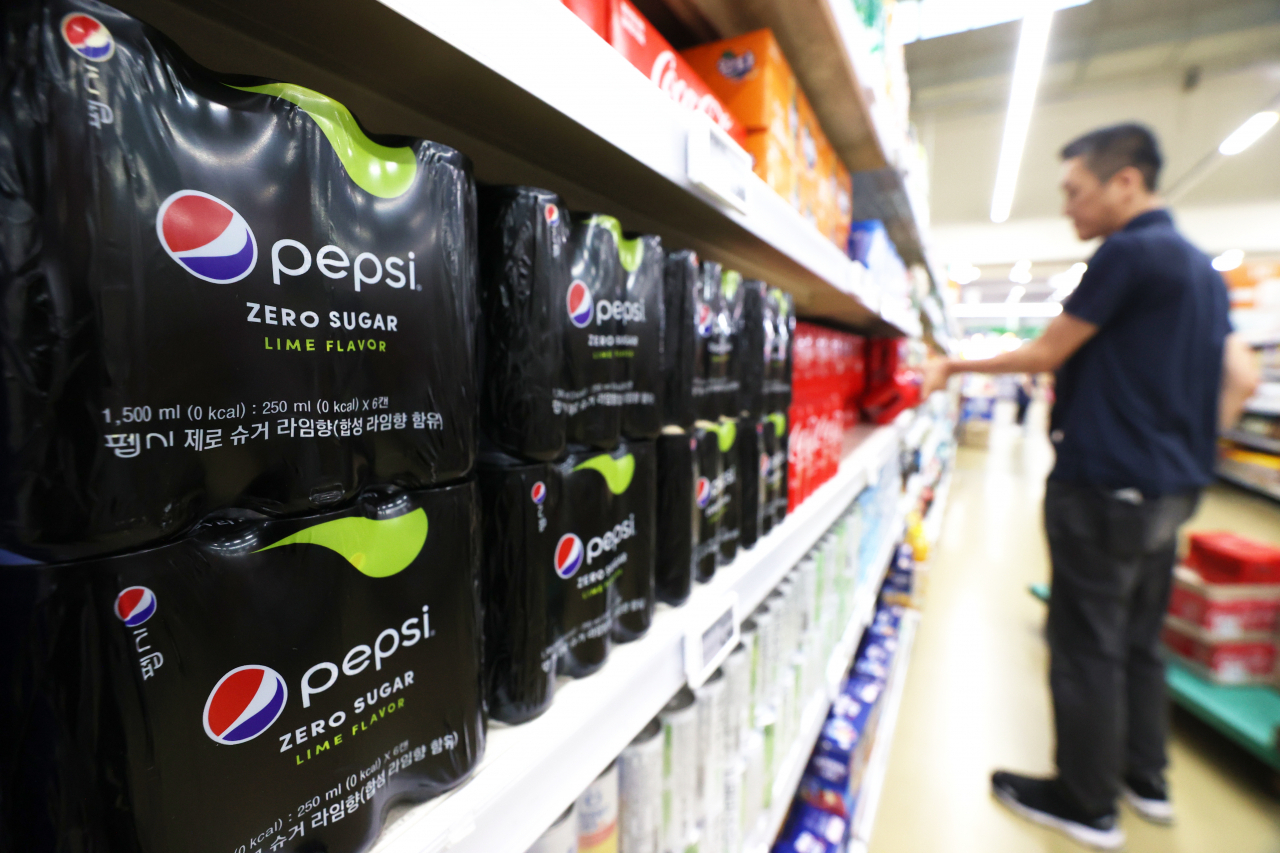 |
Consumer shops for soft drinks in a large discount store in Seoul, Friday. (Yonhap) |
South Korea’s Ministry of Food and Drug Safety said Friday it has decided to allow companies here to retain their existing internal standards for the use of aspartame in foods and beverages, despite the assessment of a WHO agency concluding that the artificial sweetener is "possibly carcinogenic to humans."
The International Agency for Research on Cancer announced Friday it has determined aspartame should be reclassified as a Group 2B carcinogen on the basis of limited cancer in humans.
However, a second WHO committee, the Joint FAO/WHO Expert Committee on Food Additives, on the same day released the results of its assessment of aspartame stating that the data evaluated indicated no sufficient reason to change the formerly authorized standard ADI, which was 0 to 40 milligrams of the substance per kilogram of body weight.
Considering that the JECFA evaluates the safety of additives when they are consumed through food, and as each country‘s regulatory agency sets safety management standards by referring to the JECFA’s evaluation results, the Ministry of Food and Drug Safety said that despite the IARC's determination, it has decided to allow companies here to retain their existing individual standards for the use of aspartame in their food and beverage products sold in Korea, following the assessment of the JECFA.
“The IARC is an organization that evaluates the risk of cancer in substances such as aspartame itself, and does not take into account the amount of intake for an individual,” said an official from Ministry of Drug Safety in a press release.
The Ministry of Drug Safety added that the decision also came as they found that the average daily intake of aspartame among Koreans surveyed in 2019 stood at 0.12 percent of the ADI set by JECFA.
“Aspartame is completely hydrolyzed into phenylalanine, aspartic acid and methanol in the gastrointestinal tract when one consumes it,” the official said.
“There are also scientific limitations to research results regarding aspartame causing oral cancer and raising possibility for genotoxicity,” he continued.
However, the ministry added it plans to investigate periodically the overall intake of natural and artificial sweeteners across food and beverages sold here and initiate the reevaluation of standards for aspartame if necessary, considering the popularity of sugar-free beverages here.
Regarding the recent announcement, Korean companies that use aspartame in foods and beverages are still considering replacing aspartame with substitutes, such as sucralose -- marketed as Splenda -- or stevia.
According to the Korea Makgeolli Association, as the unit prices of alternative sweeteners are expected to fall, it is positively reviewing measures to use sweeteners other than aspartame in its products.
However, makgeolli industry sources also said that time will be needed to study changes in the taste of makgeolli if they replace aspartame, and that additional time will be needed to make changes in the process of manufacturing aspartame-free products and label replacement.







